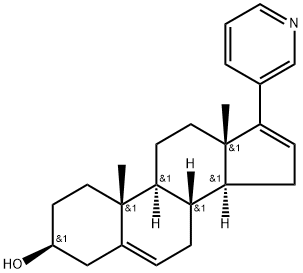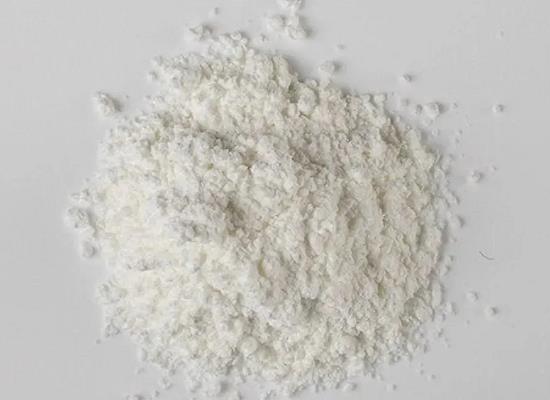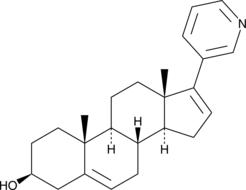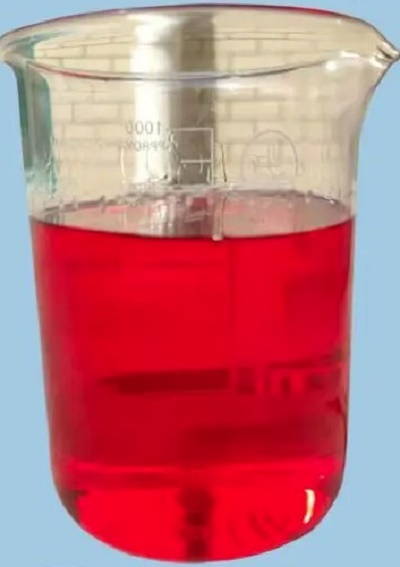Abiraterone: mechanism of action, pharmacokinetics and clinical applications
General Description
Abiraterone is a drug used to treat metastatic castration-resistant prostate cancer (mCRPC). It works by inhibiting the enzyme CYP17A, which is involved in androgen synthesis. By reducing the production of intratumoral androgens, abiraterone slows down the growth of prostate tumors. It is taken orally and often coadministered with prednisone to prevent adverse effects. Abiraterone has shown significant efficacy in improving survival outcomes in mCRPC patients. However, it can cause side effects such as fatigue, fractures, hot flashes, and changes in libido. Close monitoring is necessary to identify and manage potential complications. Ongoing research explores its application in other cancers involving the androgen receptor signaling pathway.
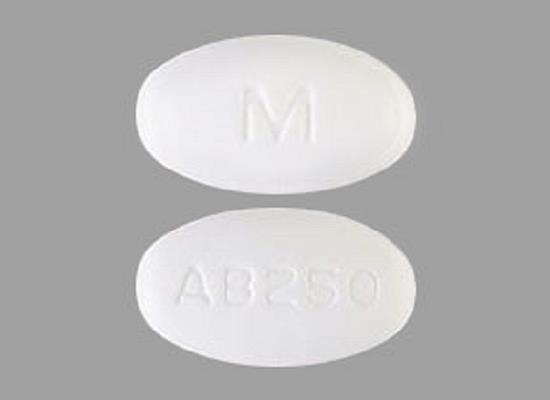
Figure 1. Tablet of abiraterone
Mechanism of action
Abiraterone is a drug that targets and inhibits the enzyme cytochrome P450 17 α-hydroxysteroid dehydrogenase (CYP17A), which plays a critical role in androgen synthesis from cholesterol. This enzyme is responsible for the production of adrenal androgens, such as DHEA and AED, as well as tumor-derived extragonadal androgens. By inhibiting CYP17A, abiraterone reduces the production of intratumoral androgens, which are believed to contribute to the growth of castration-resistant prostate tumors. Abiraterone is administered orally and is designed to irreversibly inhibit both the hydroxylase and lyase activity of CYP17A, making it more potent than previous inhibitors like ketoconazole. However, because blocking CYP17A also affects glucocorticoid synthesis, abiraterone is typically coadministered with prednisone to prevent adverse effects. In summary, abiraterone acts by targeting and inhibiting CYP17A, thereby reducing the production of intratumoral androgens in castration-resistant prostate tumors. Its potent inhibition of CYP17A makes it an effective therapeutic option in targeting adrenal and tumor androgen production. 1
Pharmacokinetics
Abiraterone is administered as the pro-drug abiraterone acetate which has improved oral bioavailability and shows near complete conversion to abiraterone in the blood. In preclinical toxicology studies, abiraterone reduced the weights of androgen dependent organs such as the prostate and had minimal side effects in other organs. First-in-man studies demonstrated the ability of abiraterone to reduce serum T levels in both castrate and noncastrate men. In castrate men dose escalation to 500 mg was required to achieve the target effect, a 75% decrease in T levels. The duration of suppression following a single dose was variable, ranging from 2–5 days. In noncastrate men, repeat dosing at ≥800 mg daily was required to maintain T suppression, and was accompanied by a marked rise in LH that may have prevented sustained T suppression. Two Phase I trials in chemotherapy-naïve men with metastatic CRPC were performed to determine the recommended dose for Phase II testing. No dose-limiting toxicities were observed at doses up to 2,000 mg/daily, but 1,000 mg was chosen for expansion as a plateau in pharmacodynamic effect was observed at doses >750 mg. Substantial variability in drug absorption was observed, with up to nine-fold differences in serum pharmacokinetic parameters within the 1,000 mg cohort. Maximal drug concentrations were achieved within 2–4 hours, with a terminal half-life of approximately 12 hours. 2
Clinical applications
Abiraterone is a synthetic steroid hormone inhibitor used in the treatment of prostate cancer, particularly metastatic castration-resistant prostate cancer (mCRPC). It targets the androgen receptor (AR) signaling pathway, which is vital for the growth and survival of prostate cancer cells. By blocking the CYP17A1 enzyme, it inhibits the synthesis of androgens, thereby preventing the activation of the AR and hindering the growth of cancer cells. Administered orally, abiraterone is taken in combination with prednisone to reduce the risk of complications associated with low testosterone levels. Common side effects include fatigue, fractures, hot flashes, and changes in libido. It is crucial to monitor patients for potential cardiac events, liver toxicity, hyperkalemia, and hypertension. Adjustments to dosage or discontinuation may be necessary if side effects occur. Abiraterone is a valuable treatment option, significantly improving survival outcomes in mCRPC patients. Ongoing research explores its application in other cancers involving the AR signaling pathway, such as breast cancer. However, it is essential to use abiraterone under medical supervision and closely monitor patients for possible side effects. 3
Reference
1. Montgomery RB, Mostaghel EA, Vessella R, et al. Maintenance of intratumoral androgens in metastatic prostate cancer: a mechanism for castration-resistant tumor growth. Cancer Res, 2008, 68(11):4447-4454.
2. Mostaghel EA. Abiraterone in the treatment of metastatic castration-resistant prostate cancer. Cancer Manag Res, 2014, 6:39-51.
3. Desai K, McManus JM, Sharifi N. Hormonal Therapy for Prostate Cancer. Endocr Rev, 2021, 42(3):354-373.
Related articles And Qustion
See also
Lastest Price from Abiraterone manufacturers

US $6000.00-5000.00/KG2025-09-11
- CAS:
- 154229-19-3
- Min. Order:
- 1KG
- Purity:
- 98%-102%
- Supply Ability:
- MT
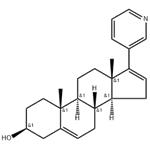
US $0.00-0.00/kg2025-08-29
- CAS:
- 154229-19-3
- Min. Order:
- 1kg
- Purity:
- 99%
- Supply Ability:
- 1
